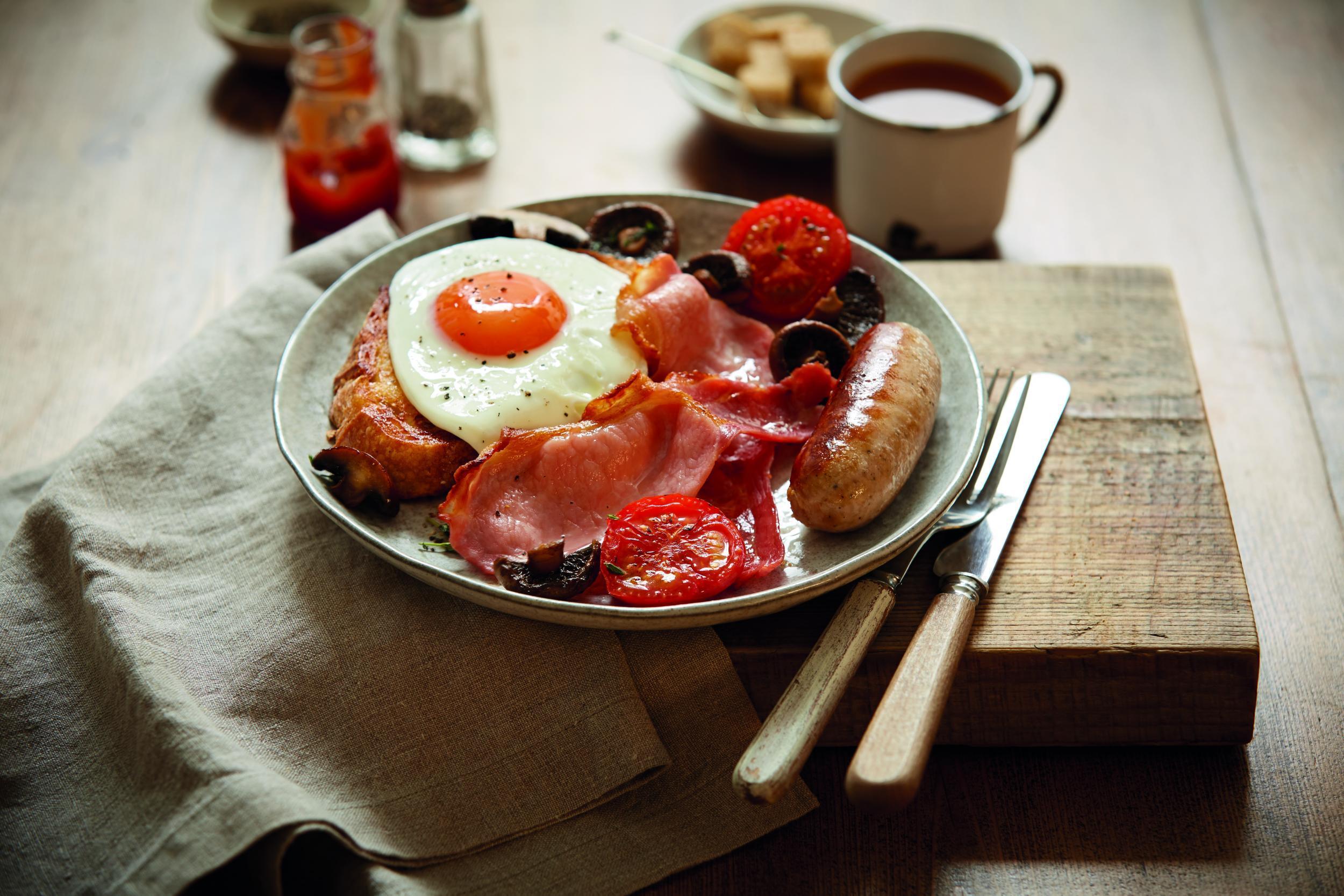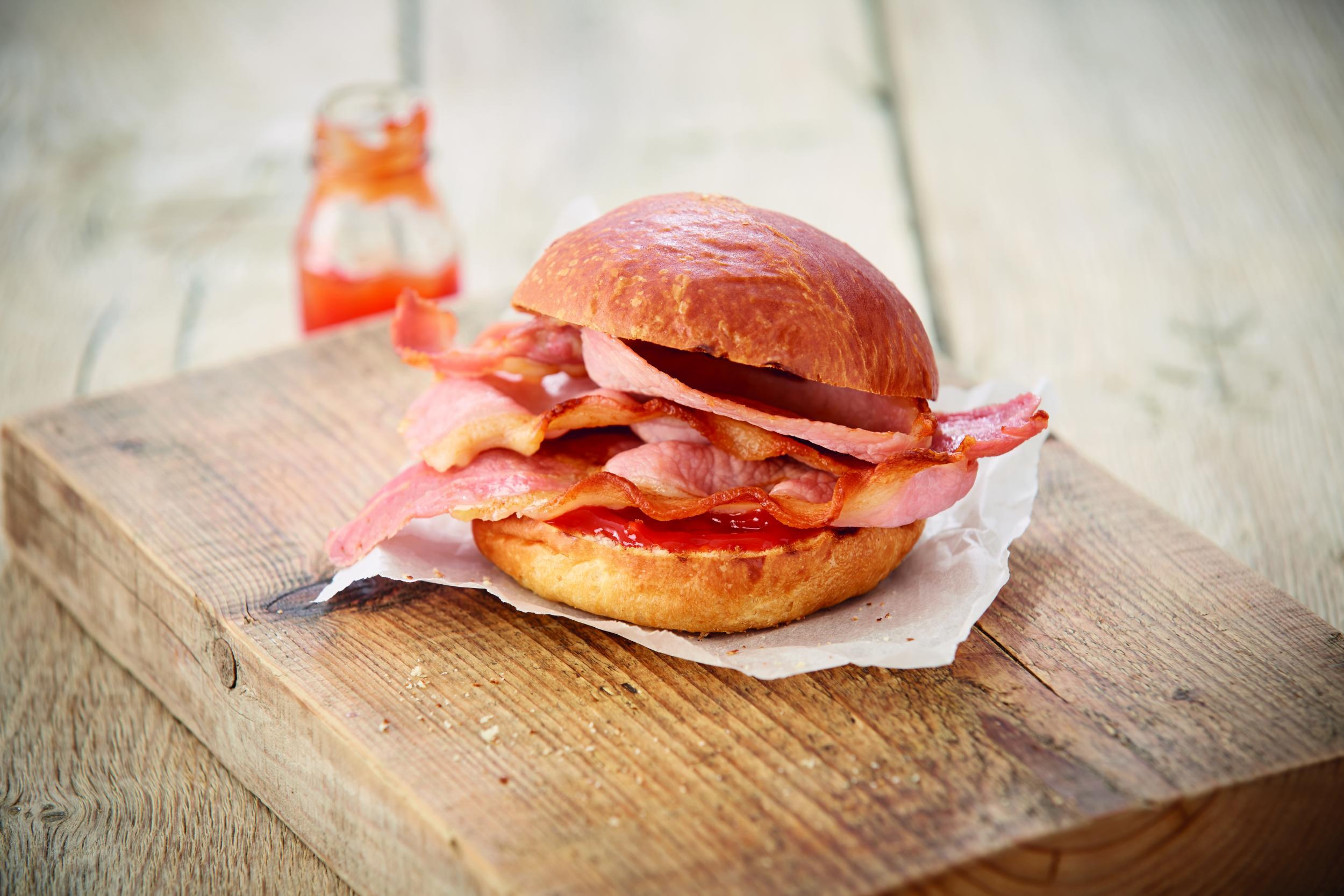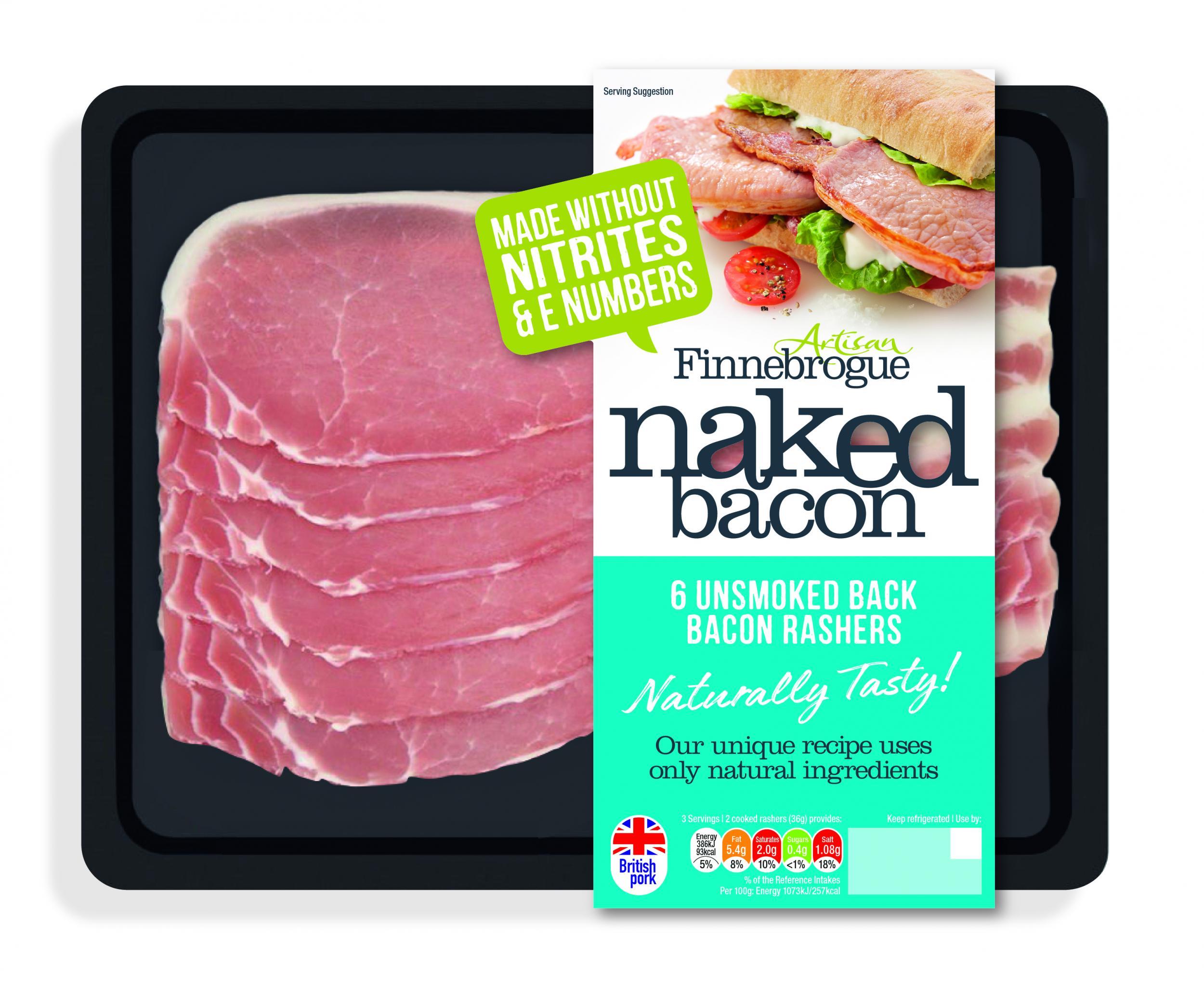Healthier bacon created without 'cancer-causing' ingredients to hit supermarket shelves
It's a breakfast game-changer

Your support helps us to tell the story
From reproductive rights to climate change to Big Tech, The Independent is on the ground when the story is developing. Whether it's investigating the financials of Elon Musk's pro-Trump PAC or producing our latest documentary, 'The A Word', which shines a light on the American women fighting for reproductive rights, we know how important it is to parse out the facts from the messaging.
At such a critical moment in US history, we need reporters on the ground. Your donation allows us to keep sending journalists to speak to both sides of the story.
The Independent is trusted by Americans across the entire political spectrum. And unlike many other quality news outlets, we choose not to lock Americans out of our reporting and analysis with paywalls. We believe quality journalism should be available to everyone, paid for by those who can afford it.
Your support makes all the difference.Good news: your weekend fry-up or Friday bacon butty could soon be better for you.
Food scientists have successfully created a new type of bacon that has a reduced cancer risk.
In collaboration with Spanish chemists, British food manufacturers Finnebrogue claim to have produced the world’s first bacon that doesn’t include nitrites from vegetables or curing agents.
Current guidance from the World Health Organisation (WHO) states that processed meats like bacon, when cured with nitrites, is in the same category as asbestos and smoking because nitrites produce carcinogenic nitrosamines when ingested.
The WHO has estimated that 34,000 bowel and colon cancer deaths per year worldwide are a result of diets high in processed meats – and they warn that eating two rashers of nitrite-cured bacon per day increases the risk of contracting bowel cancer by 18 per cent.
The reason nitrites are usually added to cured meat is to give it its characteristic pink colour and texture, as well as provide flavour and also act as a preservative.
But Finnebrogue says that by using a unique blend of Mediterranean spice extracts, following 10 years of research and development, they have been able to create bacon that tastes as good as the meat we all know and love, but without the health risks.

The Independent’s Health Correspondent, Alex Matthews-King, explains:
“Bacon-stoked cancer fears hit a fever pitch in 2015 after the International Agency for Research on Cancer (IARC) reclassified it, and other processed meats, as a Group I carcinogen – ‘cancerous to humans’.
“The IARC, the cancer research wing of the WHO, identified an association between people who ate lots of red and processed meats and an increased risk of colorectal and stomach cancers.
“It is worth noting that while bacon is in the same category as cigarettes, that does not mean it increases risk by the same amount.
“The IARC flagged preservatives, like sodium nitrite, used to cure these meats as a major culprit.
“These chemicals prevent bacteria growth and give bacon its texture and taste.
“But throughout the curing, digestion and cooking processes, these nitrites convert into nitrosamine compounds, chemicals which have been shown to cause cancer in a variety of animals and humans.
“A change in meat-curing regulations in the 1920s in America cut nitrite levels in food and coincided with a significant drop in gastric cancer deaths.
“Nitrates and nitrites naturally occur in high levels in plants – and many other sources – and some bacon-makers use a vegetable celery broth, which is also high in nitrates, as a curing agent.
“An explainer on the IARC guidance by doctors at Harvard School of Public Health says these plant-based nitrate sources should be thought of in the same way as nitrate additives.
“A spokesperson for Finnebrogue explained to The Independent that it used another chemical to prevent bacteria growth [Prosur’s nitrite replacement] and its own blend of ‘natural Mediterranean fruit and spice extracts’ to produce the texture and taste of bacon.
“Neither the spokesperson, nor additional information provided on the product, set out what these extracts are.”

Most people would agree that one of life’s greatest pleasures is waking up to the smell of bacon frying in a pan, but sadly we know that it isn’t the most nourishing food and so shouldn’t be eating it every day.
That doesn’t stop British people eating 159 million kg of bacon every year, though, which is worth almost £1bn in retail sales.
The new product, Naked Bacon, could be a game-changer once it hits shelves on 10 January.
Whether it tastes as good as standard bacon remains to be seen, but unsurprisingly there has been much excitement around the new product.
Neil Parish MP, chairman of the House of Commons Environment, Food and Rural Affairs select committee, says it is great news for the British food industry.
He commented: “Making bacon without nitrites – and reducing the risk in the famous full English breakfast – is a remarkable feat of food technology and a brilliant British success story.
“This is further evidence that the British food industry is going from strength to strength. UK firms like Finnebrogue are leading the way in producing some of the best food anywhere in the world.”
Join our commenting forum
Join thought-provoking conversations, follow other Independent readers and see their replies
Comments